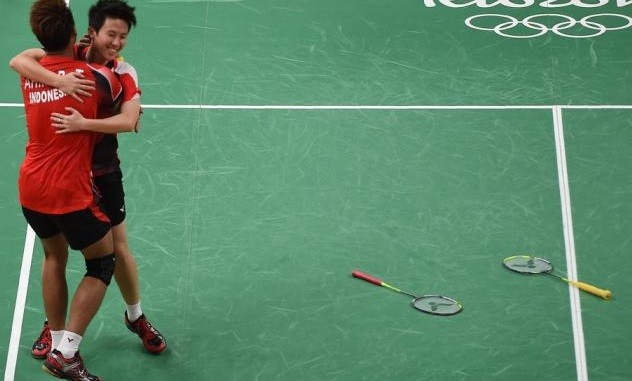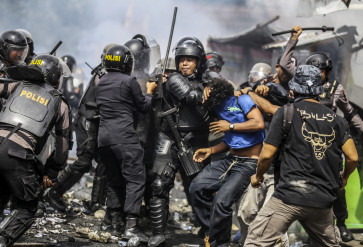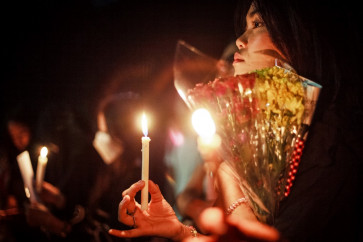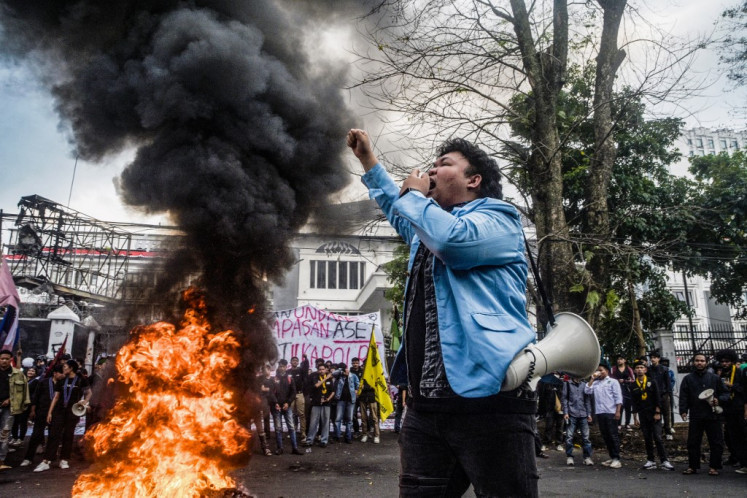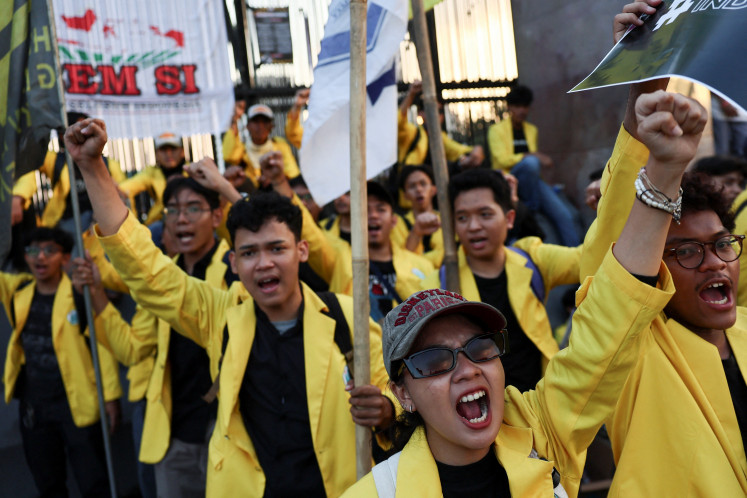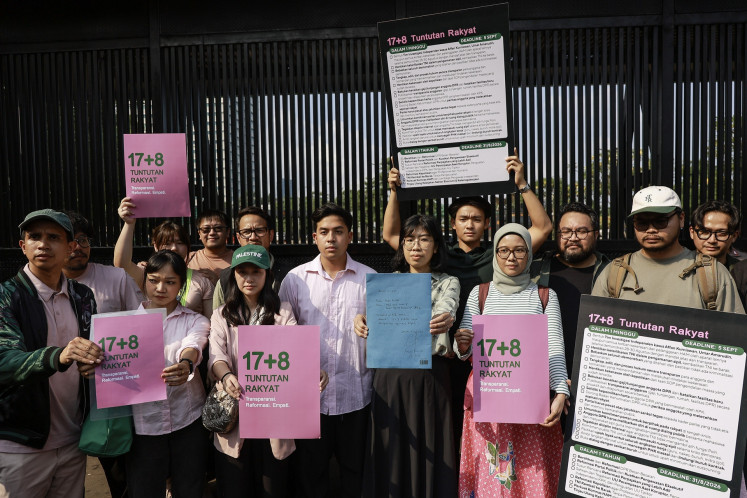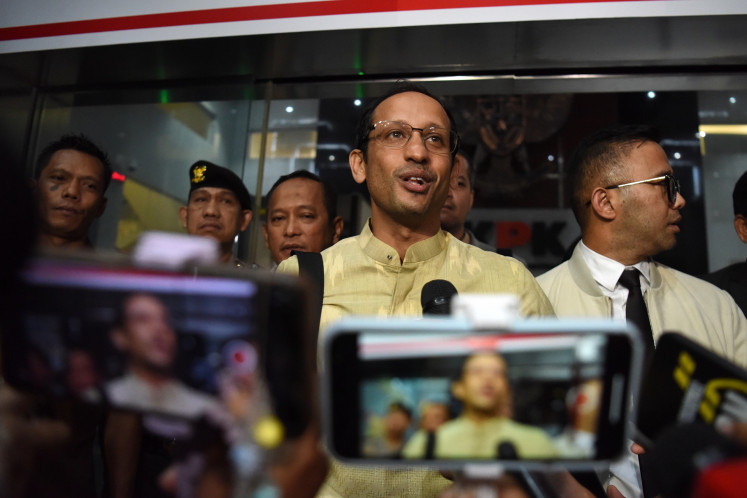Popular Reads
Top Results
Can't find what you're looking for?
View all search resultsPopular Reads
Top Results
Can't find what you're looking for?
View all search resultsBook Review: Politics in Asian sports
The Asian Games began in 1951, but German historian Stefan Huebner – a research fellow at the National University of Singapore’s Asia Research Institute – wanted to look further to the Asiad’s origin in the Philippines. Pan-Asian Sports and the Emergence of Asia, 1913-1974 is an academic book looking at multi-sport events held among Asian countries, starting from the first Far Eastern Championship Games held in Manila to the seventh Asian Games hosted by Tehran. This story begins with paternalistic colonialism. It ends with the tragic pride of an empire.
Change text size
Gift Premium Articles
to Anyone
The Asian Games started as a celebration of amateurism. Then nationalism kicked in.
We followed the Rio Olympics for a few reasons. Support for women in sports. Support for a particular athlete. The festivities. Most people in the world, in fact, were only interested in their own countries. Specifically, the chance of their country winning gold. When Jakarta and Palembang host the 2018 Asian Games, some Indonesians might take interest in the Japanese football team or the Chinese divers, but what will really matter for Indonesians is Team Indonesia winning big.
The Asian Games began in 1951, but German historian Stefan Huebner – a research fellow at the National University of Singapore’s Asia Research Institute – wanted to look further to the Asiad’s origin in the Philippines. Pan-Asian Sports and the Emergence of Asia, 1913-1974 is an academic book looking at multi-sport events held among Asian countries, starting from the first Far Eastern Championship Games held in Manila to the seventh Asian Games hosted by Tehran. This story begins with paternalistic colonialism. It ends with the tragic pride of an empire.
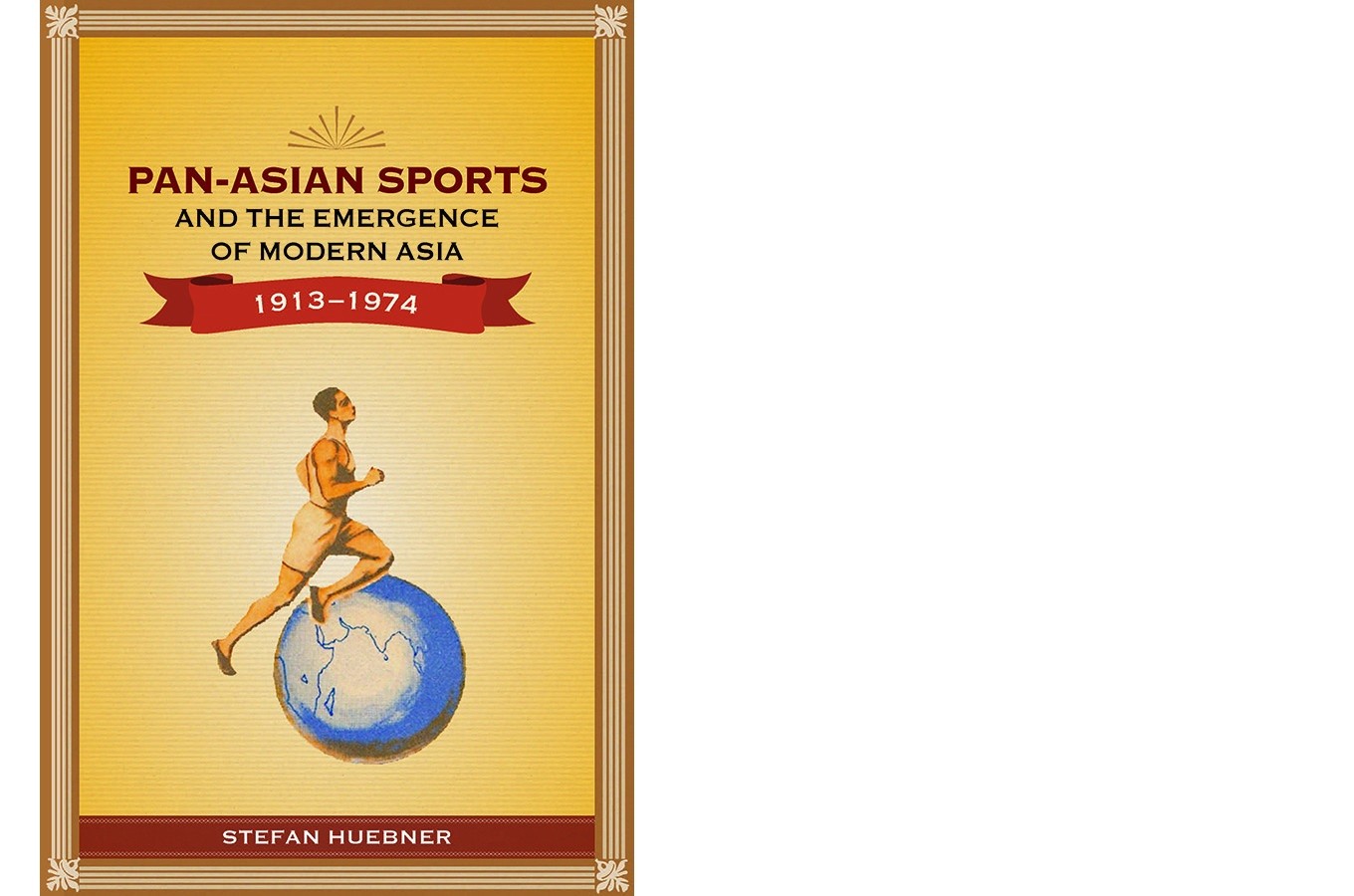 Pan-Asian Sports and the Emergence of Modern Asia: 1913 – 1974 by Stefan Huebner. NUS Press; 416 pages; S$46
(NUS Press/File)
Pan-Asian Sports and the Emergence of Modern Asia: 1913 – 1974 by Stefan Huebner. NUS Press; 416 pages; S$46
(NUS Press/File)
When the United States took the Philippines from Spain at the turn of the twentieth century, the Americans believed that they had a religious responsibility to improve the Filipinos’ characters. The Young Men’s Christian Association (YMCA) of the US, the inventor of basketball and volleyball, stepped in.
The colonial administration hoped that American sports could form the Filipinos into punctual, rational and disciplined people. The YMCA’s man in Manila, Elwood Brown, wanted the Filipinos to compete with Americans, Chinese and Japanese in an amateur competition, for the sake of character development.
By the 1920s, the YMCA’s idealism clashed with the reality of Asian politics. Conflicts between China and Japan quickly escalated. Asian nationalists wanted to prove that their youths were strong and capable, and they wanted to get rid of the Americans and their Christian amateurism.
After the Second World War, India was the only country capable of hosting the Asian Games. Prime Minister Jawaharlal Nehru stated that Asian nations would come together to create a more egalitarian world, a new world where Western civilization was no longer supreme. This would be the recurring theme in all Asian Games ever since, although the host nations would focus more on their own personal agendas.
Dr. Huebner uncovers the specific agendas of each Asian Games from 1951 to 1974. The host country always wants to show that they are a proud nation with a glorious past, and they communicate this message with grand gestures in the build up to the games and during the opening ceremony.
If India wanted to create an egalitarian and secular India in the disguise of a pan-Asian gesture, then the Philippines wanted to gather the democratic, or more precisely anti-communist, Asia in 1954. Tokyo took the 1958 games as a demonstration of its capability to host the Olympics.
The 1962 Asian Games in Jakarta would become the most problematic in history, since the organizer did not invite Israel or the Republic of China, and their inquiries were not answered properly. Huebner argues that Sukarno built Jakarta frantically to compel Indonesians outside Java to accept Jakarta as the capital city, and to show the world that Indonesia was indeed the leader of the Non-Aligned Movement.
After the successful games, the International Olympic Committee suspended Indonesian membership and Sukarno proceeded with the Games of the New Emerging Forces (GANEFO) 1963. Huebner believes that even without the sanction, Sukarno would have gone ahead with GANEFO as a part of his post-Bandung Conference dream of leading the “New Emerging Forces” in Asia and Africa.
Anti-communism returned four years later in 1966, when Sukarno was overthrown and Bangkok hosted the games. Bangkok had become a rest and recreation hub for American soldiers, and the city thrived from sex tourism and beauty contests. Miss Universe 1965 and Miss Thailand 1966 bookended the parade of nations in the opening ceremony. The message of the games was the unity of the monarchy and the military, symbolized by the white elephant and the garuda.
Seoul was supposed to host the 1970 Games, but pulled out and Bangkok hosted it again. This time, all nations brought in their beauty queens for the opening ceremony, and the IOC president praised Asia as the spiritual continent where peace and order were respected, unlike the chaotic West marred by demonstrations and riots.
The final chapter, in Tehran 1974, has the best story. Flush with oil revenue, Shah Mohammad Reza Pahlavi was not content being the Light of the Aryans. He wanted Iran to become the leader of the Indian Ocean region, and was proud that Iran could rally Arab nations to join the games and break the East Asian monopoly of the Asiad. The monarchy also successfully pushed for the inclusion of the People’s Republic of China, as Tehran saw Beijing as an effective foil against Moscow.
Blessed with the advent of color television, satellite broadcasting and digital billboards, the games showcased the grandeur of the imperial family. The shah hoped that Tehran could host the 1988 Olympics and Iran would replace Japan as Asia’s leader. Before the closing ceremony, he had embarked on an Indian Ocean tour.
Unfortunately this entertaining last chapter is followed by an overlong conclusion, where everything from the start is recounted, while a concise five pages would be enough. For all the talk on pan-Asia, West and East Asia cannot stand each other. Despite claims of millennia of trade and religious links, the islands and the landmass of the Indian Ocean and the Pacific Ocean are too vast and too proud to relate to each other. Even in 2016, it is still rare for us to have good friends from other Southeast Asian nations.
This book is an academic book. It is drier and more expensive than popular paperbacks. If you want to get in-depth information about 20th century sports in Asia, however, this is one of the few books available in English. It presents an important case that sporting games are always political.
Pan-Asian Sports and the Emergence of Modern Asia: 1913 – 1974 by Stefan Huebner. NUS Press; 416 pages; S$46
***
Mario Rustan is a frequent contributor to The Jakarta Post having published opinion pieces, a short story and a book review for the newspaper. He is also the New Guy columnist for feminist website Magdalene.co. Twitter: @mariorustan.
---------------
We are looking for information, opinions, and in-depth analysis from experts or scholars in a variety of fields. We choose articles based on facts or opinions about general news, as well as quality analysis and commentary about Indonesia or international events. Send your piece to community@jakpost.com. For more information click here.

